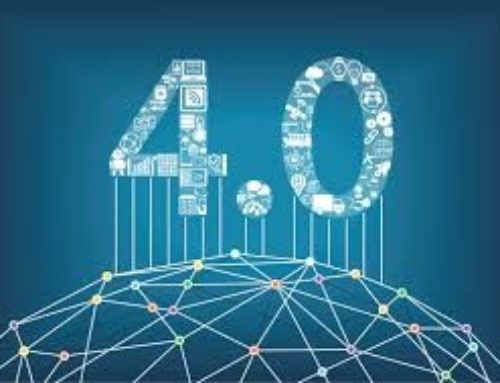
Are YOU a Transformative Leader?
By Ira Kaufman
In our ever shifting world, the leader is the fulcrum for directing transformation. Organizational change is often stressful and difficult. By anchoring their intention and clarifying their purpose, leaders define a clear path for the mindset and culture required to realize transformation. Most businesses and organizations facing change are traditional in purpose, design, and operations.
Media has loosely noted a range of public figures as “Transformative Leaders” from country leaders, visionaries and business-people to celebrities and educators. They include: Martin Luther, President Trump, Elon Musk, John Delaney (President, University of North Florida), Adolph Hitler, Jeff Bezos, Herb Alpert (musician), Meg Whitman, Nelson Mandela and Vladimir Putin. Some disagree with labeling all these people as transformative. See Was Hitler a Transformative Leader?
To get us on the same page, the Transformative Leadership Continuum was developed. It provides the evolving leader with a snapshot of where they are in the process and what are the future challenges that they can expect. Four leadership types are defined by approach to disruption and purpose (organization transformation goal, values, velocity of change and business objective.) (see below) As organizations embrace transformation, they will face significant changes in eleven categories that define the transition. (see expanded version of the Transformative Leadership Continuum)
Transactional Leaders… resist disruption
The mindset of the Transactional Leader is the default “old business” model, where controlling executives were prevalent and organizations were slow to change. They focus on their sole objective, the single bottom line – to increase investor value, and neglect the needs of other stakeholders. These leaders focus on adapting business processes and innovations to increase efficiency and performance. They resist organizational change until it becomes inevitable and even then, may rather sink than swim.
Employees are faced with a rigid operating system and a superior with a punishment and reward system based on goals aimed solely at increasing profits.
This type of leadership lacks the flexibility and vision for success in the digital age, but they realize that digital is a reality and must become a strategic priority. They begin their investment in digital by “peeking” into this new world from a secure position, looking to be convinced of the value and a “safe” transformation roadmap.
Transformational Leaders … experiment with disruption
Transformational Leaders evolve a digital mindset with an open approach towards improving organizational culture and customer experience (CX). They work to change operating systems, but only incrementally and as necessary to be digitally competitive. They strive to adopt a Triple Bottom Line, where the objective is not only maximizing profit, but positively affecting customers and employees as well as the environment.
Employees under a Transformational Leader are inspired and rewarded for their innovative and risk taking, more so than they are punished. This creates a positive attitude and improves morale. Employees’ skills are also utilized more fully because they are organized in teams designed to maximize capability and productivity.
Transformative Leaders
Transformative Leaders, in the broadest sense, are defined by their intention for change; their positive vision for society; and the sustainable impact they’re creating. Digital Transformation, incorporating both digital technologies and a customer-centric mindset, is a major strategic priority. Employees working with these leaders are rewarded for risk-taking and not punished for failure. In addition, these leaders are inclusive, embracing the needs of all their stakeholders (e.g., consumers, employees, partners, community and investors), not just one segment. (Note this is contrasted with a transactional leader- see above ) Finally, they must be committed to change themselves via self- reflection, as well as their mindset and the culture of their organization. Based on the above definition, we have determined that both Purposeful and Catalytic leaders have a transformative mindset but have different intentions as to implementation and outcomes.
Purposeful Leaders… “own” disruption
Purposeful Leaders are anchored in the organization’s values and focused on expanding their impact on sustainable outcomes for all shareholders. Paul Polman, CEO of Unilever, discussing the critical qualities of today’s leaders, stated, “the first thing is to be purpose driven and to have values (e.g., integrity, trust, caring) … I’m very inspired by the Dalai Lama, who said once, “If you seek enlightenment for yourself just to enhance yourself, you missed the purpose. If you seek enlightenment for yourself by helping others, you are with purpose.” And I think that’s the style of leadership that we increasingly need in today’s world.”
These leaders stand in opposition to the traditional business model, with a focus on preparing for the unavoidable consequences of embracing change as a constant, both for their organizations as well as in their personal lives. These leaders strive to integrate transformation across all aspects of the organization with a laser focus on their agreed upon values. Purposeful Leaders look to broaden their social impact by applying a Quadruple Bottom Line. This expands the bottom line of People, Planet, and Profit, by incorporating a fourth component– Prosperity, how they can impact communities affected by the organization. Polman continued discussing business social responsibility, “businesses like ours have a role to play in the challenges of poverty, of water, of global warming, climate change.”
Employees under this type of leader are expected to be adaptable to new organizational needs and willing to tear down the walls of organizational silos (e.g. Marketing, H.R., Finance, etc.) and work with various departments to gain different perspectives. Employees are organized into diverse teams integrating key demographics (e.g. age, race, gender) to insure the “creative tension” necessary to drive innovative solutions for a wide array of target markets.
Catalytic Leaders … fuel disruption
Catalytic Leaders crave change to meet current and anticipated challenges, and are continuously innovating and designing more effective ways to improve the lives of all stakeholders on a local and global level. There is a focus not only on what the organization is, but what the organization wants to become. Their goal is generating social change while still garnering a sustainable profit or impact. Changes to businesses because of this type of thinking are far more impactful and sustainable than changes created to solve an existing problem. The Quadruple Bottom Line is expanded into a more eco-friendly and sustainable model.
Employees work in the same functional capacity as they would under a Purposeful Leader. A difference lies in their intent to inspire their teams and reward members with opportunities to grow as individuals and to impact local and global communities.
Relationship of Impact and Change
The evolution from a Transactional to a Catalytic Leader requires an organization to transform its current strategies and operations in favor of moving towards a more integrated and digital approach. Leaders progress along the continuum as their goals change to impact their targets on a larger scale. Leaders must self-reflect and adopt a transformative mindset before they can affect change in the business or organization. The organization must evolve until it is digitally integrated and collaborative before attempting to affect society in any sustainable way. The organizations that take this leap of faith into the digital unknown are rewarded with loyal customers and employees as well as ‘sustainability” in the marketplace.
*************
Ira Kaufman PhD is a Digital Transformation Strategist, CEO, Social Entrepreneur and Educator. His company, Entwine Digital, has been working with midsize and multinationals to train World Class Digital Leaders and Transformative Leaders. His team is collaborating with Lynchburg College School of Business and Economics (ranked #2 for North American programs in Leadership Development) to launch Institute for Transformative Leadership and Legacy International (NGO specializing in training future leaders) to provide training for executives, managers and emerging leaders to face the challenges and seize the opportunities of our 4th Industrial Revolution.







Leave A Comment